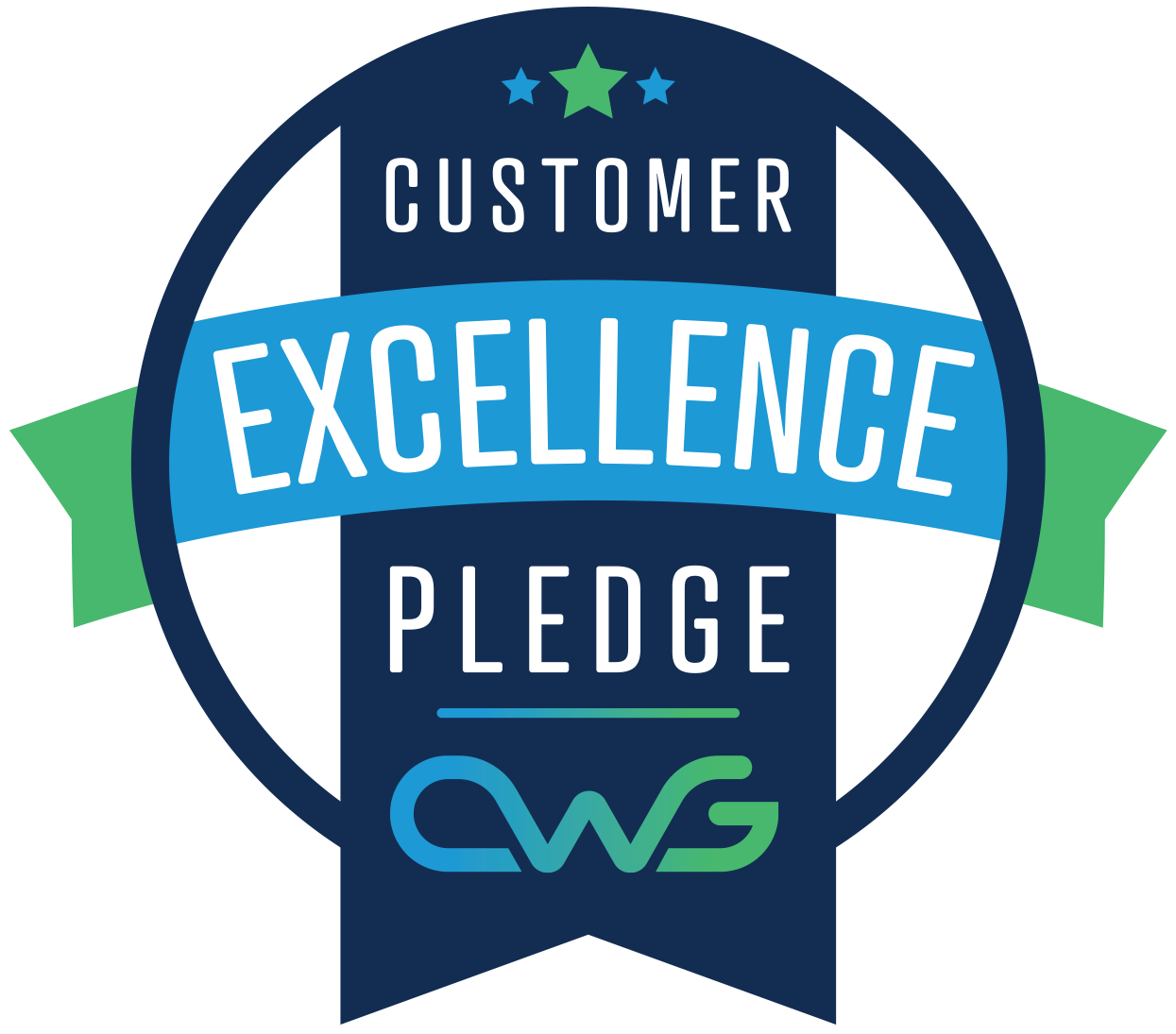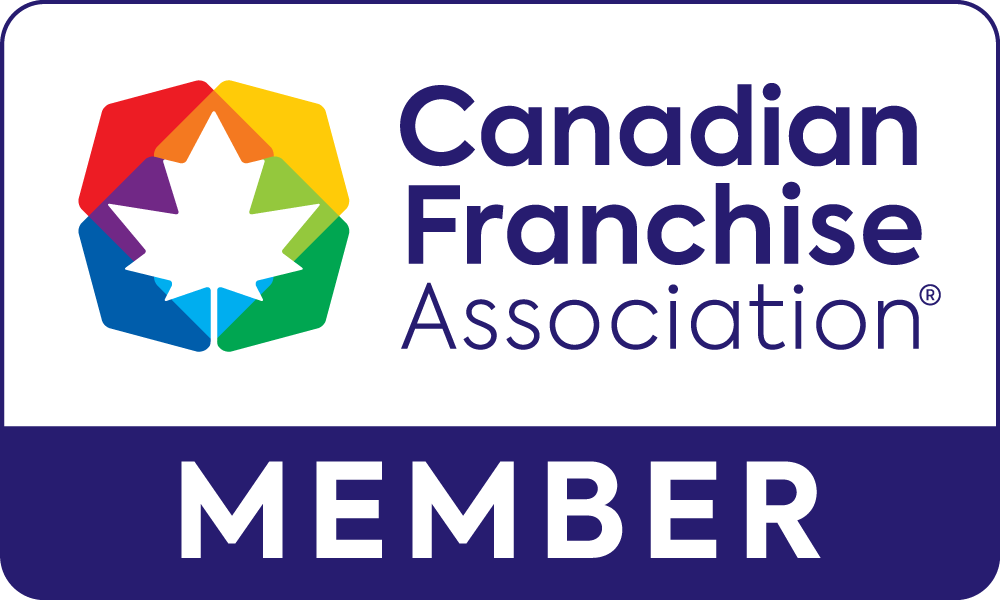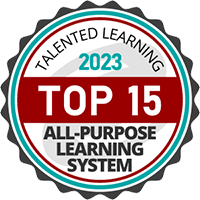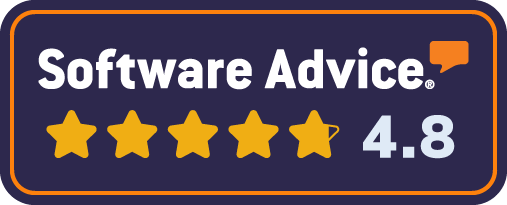Use content libraries to drive your upskilling and reskilling programs

The two most common reasons for exploring content libraries are: addressing immediate, targeted training needs and fostering upskilling within an organization.

Content libraries also cater to organizations looking to invest in their team's long-term professional development. Offering a diverse selection of courses in areas such as leadership, project management, and team building not only promotes continuous learning but also supports organizations committed to internal growth and promotion.
You might have considered creating custom courses in-house or partnering with an agency. Both of these are great options for high-value content that requires extensive personalization. However, if you don't require that level of customization, content libraries are a great, affordable solution.
Boasting thousands of ready-to-launch courses, content libraries are an accessible and cost-effective option for a wide range of businesses and organizations. Let's explore the world of content libraries, their benefits, how they operate, and how to determine if they are the right choice for your organization's needs.
How do content libraries work?
Content libraries fall into one of three primary categories
Course Aggregators
- These companies build huge libraries made up of courses from individual providers.
Course Providers
- This group can range from companies to individuals who build courses that are sold through their own websites and/or through content Aggregators. Often, they are highly specialized in one area of business – like marketing, sales training, or technical proficiency.
Free Content
- There are thousands of free courses (or relevant content) on platforms like YouTube, SlideShare, and many others, where content creators put up their courses for free, often as a promotion to sell other services. There are no quality control guarantees and no one to confirm the expertise of the instructor.
What about AI-created content?
The rise of AI has created a new category of online course – one that is not written by a human but is compiled by a program that synthesizes information from a vast body of internet-based information (which may or may not be correct, biased, or sound like a human wrote it.)
This is an exciting new technology that is starting to influence how quickly course material can be created. Speed is good, but accuracy and specificity are better – any AI-generated text – especially course material – needs to be reviewed and edited by a human for tone, accuracy, and relevance to your desired training outcomes.
What about customizing the courses?
Wouldn’t it be nice to have the best of both worlds? To be able to customize existing content libraries provide you with the cost advantages of licensing pre-built courses, with the ability to pay for targeted modifications such as
- Your company branding,
- Your own internal language and terminology,
- Your own case studies,
- Additional readings, diagrams, or even quiz questions.

A limited number of content providers provide you with the ability to customize the modules. The customizations may need to be performed by the provider, or you may get access to the modules to edit directly.
- In the case that the provider performs the customizations, there are likely customization packages that you can select from.
- In the case where you can edit the modules directly, you’d need to use the same authoring tool which they used to build the course.
We designed our NeoSkills course library to be customizable with your branding or content.
Find out more!Will a content library work with my learning system?
Content libraries generally will work with any learning management system (LMS). All you need to know is that both your LMS and your content library both support the same packaging format:
- AICC
- SCORM 1.2 or SCORM 2004 (most widely used)
- xAPI
Given the choice, we recommend that you select the xAPI format – it’s the most modern format. The older formats, SCORM and AICC, are more prone to learner issues, such as errors during the launching of a module or issues preventing progress from being recorded.
What if I don’t have a learning system?
Many course content providers offer their own basic LMS platforms. If you have very basic needs focused on simply allowing your learners to access the content with basic reporting, this could be a good choice.

If you have more complex needs, then you should consider getting a full-featured learning system. Some of the many benefits of a more sophisticated LMS are
- Integrate your learner records with your HRIS or other software
- Manage enrollments and learning plans
- Incorporate instructor-led training session data
- Advanced reporting and data analysis capabilities
Are you not sure if your existing LMS supports the same packaging format as your course library? We can help!
What are popular content libraries and topics?
What are the popular content libraries?
Here’s a table that gives you a comparison of the leading subscription options – but these numbers are meant to be indicative only and may not represent each vendor’s current pricing.
Library
Type
model
Courses
What topics are available?
The list of available courses is huge! There are hundreds of thousands of courses available on almost any topic you can imagine.
For business, there is a focus on topics like:
Human Resources
- Communication
- Conflict resolution
- Critical thinking and problem-solving
- Diversity and inclusion
- Language learning
- Leadership and management
- Team building
- Time management
Marketing
- Content marketing
- Data analysis
- Digital marketing
- Graphic design
- Music production
- Product photography
- Search engine optimiziation (SEO)
- Social media marketing
- Video production
- Web development
Sales
- Prospecting
- Sales closing
- Sales techniques
Business Skills
- Change management
- Finance and accounting
- Product management
- Project management
Front-line Training
- Customer service
- Money-handling
- Shoplifting prevention
Employee Wellness
- Creativity and innovation
- Emotional intelligence
- Stress management
- Wellness and mindfulness
- Workplace safety
IT/Development
- Artificial intelligence
- Cloud computing
- Cybersecurity
- DevOps and agile methodologies
- E-commerce
- Machine learning
- Programming languages
And more. There are hundreds of thousands of individual courses available from online course libraries. In addition to individual courses, there are entire professional certification programs available, such as
- Cybersecurity certifications (e.g., CompTIA Security+, CISSP)
- Design and creative certifications (e.g., Adobe Certified Expert, UX design)
- Environmental certifications (e.g., LEED certification, sustainability)
- Human resources certifications (e.g., SHRM-CP, PHR)
- Information technology certifications (e.g., CompTIA A+, Microsoft Certified Solutions Associate)
- Leadership certifications (e.g., leadership development, executive coaching)
- Marketing certifications (e.g., AMA Professional Certified Marketer, HubSpot Inbound Certification)
- Project management certifications (e.g., PMP, CAPM)
- Supply chain and logistics certifications (e.g., Six Sigma, APICS certification)
Want to learn more about the popular content libraries or topics we mentioned? We can help you select the best option for your needs!
Which content library will meet my needs, and what's the cost?
What does a content library cost?
Course libraries are typically licensed either seat-based or pay-per-course.

Seat-based means you pay for the number of learners that can access the training, For instance, if your company has 500 employees, and you want them all to have access to the course catalog, then you would need 500 seats. You pay the same price regardless of how many courses are actually accessed by your employees.
Some libraries allow you to pay based on how many employees actually access the library, but this is less typical – usually, you have to pay based on whether employees have the ability to access the library, not whether they do or not.
The cost range for a course library subscription is $100-$200 per learner per year for access to thousands of courses.
Pay-per-course means you pay for each person that is assigned to a specified course. You pay for the course even if the learner fails or fails to complete it.
The cost range for a pay-per-course program varies. Individual modules may cost $25-$100 for general topics. However, specialized training or certification programs may cost hundreds or thousands.
How do I determine which content library is right for me?
Here are some steps you can take to decide on the right content library provider for your organization:
- Determine your organization's specific training needs and goals. What topics do your employees need training on? What are your performance goals? Answering these questions will help you narrow down your options.
- Research different content library providers to find ones that align with your needs. Look for providers that offer content on the topics you need, have a good reputation, and offer the level of customization and flexibility you require.
- Examine the quality and relevance of the content libraries providers you shortlisted to ensure that their content offering up-to-date, engaging, and high-quality.
- Evaluate the pricing models and delivery options offered by different providers to ensure they fit within your budget and align with your training delivery preferences.
- Before making a final decision, test the provider's platform (if you are using their learning system) or the content library within your own learning system to ensure compatibility.
Need help finding the right content provider?
We help you understand your course selection and usage needs.
How do I convince my boss we need a content library?
Here are some of the most common objections and possible solutions to upselling your boss on adding a content library to your training mix.
Objection: “We can't afford it.”
If you need to start training your team right away, you can’t afford to delay. Every week that passes without your team changing their behavior or improving their skills compounds the challenges you are experiencing. Similarly, if you need to upskill or reskill your team to improve their performance or close knowledge gaps, not investing in available training, even as a short-term solution while your own custom courses are under construction, is compounding the problems you want training to solve.
Consider the potential ROI of investing in employee training and development, such as increased productivity and improved job performance.
Objection: “You don’t have topic ‘X’.”
There are hundreds of course providers, ranging in size and sector-specific topics. We recommend working with a trusted partner to find the right courses for your needs. If you can’t find the right course, the next step may be custom course creation if you or others in your organization have subject matter expertise.
Objection: “We don't need that many courses.”
You likely won’t need every single course offered by the library, but having access to a wide range of topics and options will allow us to better meet the individual training needs of our employees. Most, but not all, content libraries have plans that allow you to select only the courses that you need.
Objection: “Our employees won't use it.”
Studies indicate that employees want to learn, and one of the most common reasons people change jobs is because they feel that they don’t have access to the types of training they need or want to take.
According to LinkedIn Learning’s 2019 Workplace Learning Report, 94% of employees would stay longer at a company that invested in their development – and three-quarters of employees want to learn at work.
Soft-skills training dominates employee wish lists with the following topping the list of desired subjects employees want:
- Leadership and management courses: 57%
- Creative problem-solving: 42%
- Communication skills: 40%

These topics are ideal subjects for a course library, as the content is generic and can be supported by future custom courses for specific organizational needs.
Employees love recognition from their managers. Here are the demographics of learners who would spend more time learning (and improving their performance, by default) if their learning was recognized by management.
- Gen Z – under 22 years: 44%
- Millennials – ages 22 to 37: 36%
- Gen X – ages 38 to 53 years: 28%
- Baby Boomers – ages 54 to 72: 21%

There are ways to encourage engagement and participation. For example:
- Set goals for completion rates and offer incentives or recognition for employees who complete a certain number of courses
- Survey employees to get a better understanding of their training needs and interests and use that information to select courses that are more relevant to them
- Offer training and support to help employees navigate the library and get the most out of it.
Is your boss’ objection not listed above? Let us know the roadblocks in your path, and we'll help you form a winning strategy to clear your hurdles.
How can Neovation help?
We resell the best content libraries
Neovation is an authorized reseller for BizLibrary, Go1, and Syntrio – the most popular and complete content library providers. We can understand your needs and recommend the right provider.
We can help you Identify your organization's training needs and goals and any specific requirements or preferences, and the budget required. Then we can recommend the course library and even the courses that are the best match for your needs.
The NeoSkills Course Library
In response to our clients asking for a content library that they can customize, we've built our own course library. What's included?
- Introduction to Leadership
- Anti-discrimination and Anti-retaliation
- Conflict Resolution
- Diversity, Equity and Inclusion (DEI)
- Harassment and Bullying Prevention
- Practical use of Generative AI
- Time and Stress Management
- Sexual Harassment Prevention
- Accessibility
- Cybersecurity
- Data Privacy and Security
- Effective Communication Skills
- Ethical Conduct
Our growing library of engaging, interactive NeoSkills courses can be edited to include your
- company branding
- internal language and terminology
- case studies or examples, readings, diagrams, and quiz questions.
There are two levels of customization available based on the depth of customization that you need. Our team of experienced professionals will ensure your customized NeoSkills course delivers great value for your training investment.
And if you need an LMS...
If you don’t have an LMS, Neovation also has our SmarterU learning management system, so you can deliver your courses, track learner progress, and run reports to measure your return-on-training-investment.
So, let’s talk! We’d be happy to help you find the perfect library for your budget and needs.
Request your free eLearning content library quote
Fill out this form, and we’ll get back to you in 3 business hours to introduce you to your personally selected Learning Advisor with experience in your industry, who will book a meeting with you to discuss your content library options.
There is no obligation – we are looking to gather facts to help you make an informed decision so you can find a content library that meets your budget and needs.
We process your information according to our privacy policy. By submitting the form, you authorize us to communicate with you.





See what our clients say

In terms of the product itself, we needed a training solution that would work seamlessly with a large user base. We didn't want a tool that was overly manual or administrative — SmarterU has exceeded our expectations.
Carmel Hodgins
Dealer-FX

-svg.svg)
-svg.svg)
-svg.svg)
-svg.svg)